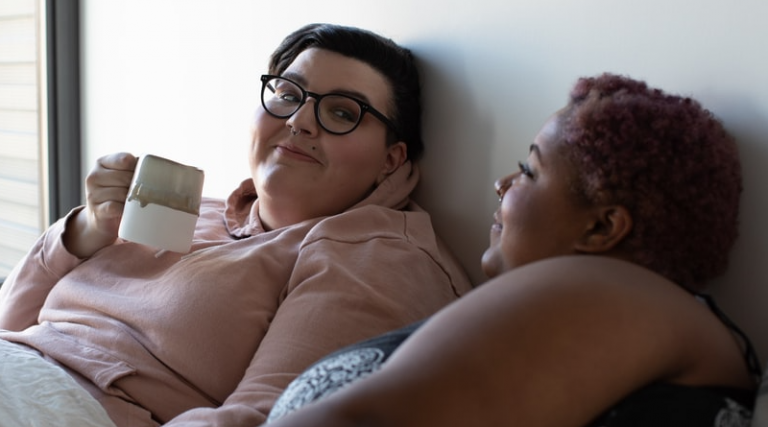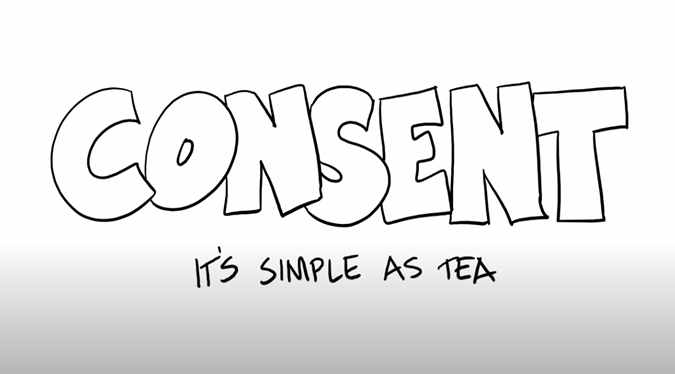Sex and the law
Make sure you know your rights and responsibilities when it comes to sex
Thinking about the legal context of different sexual activities can feel a bit complicated. So, let’s take a look at the various laws and how they protect young people.
Jump straight to our Getting help section below if you want to access support around any experiences of sexual violence and unwanted sexual behaviour.
Consent consent consent
Before we get into the different ages within legalisation, consent is at the forefront of sex and the law. Without consent, it is sexual abuse, such as rape and sexual assault. A person consents if they agree by choice. They crucially have to have the freedom and capacity to make that choice.
A person does not have the freedom to consent if, for example, they are forced with violence or threat of violence to agree or engage in sexual activity. A person does not have the capacity if, for example, they are intoxicated or if they have a mental disorder.
Consent can sometimes feel more complicated than a straightforward yes or no. But no one has the the right to pressure or force anyone into sexual activity – whether they’re a boyfriend, girlfriend, or someone else you know. It is against the law to disregard someone’s ‘no’ to sexual activity. This is sexual abuse, and it is never okay.
So, how old should I be to have sex?
The age of consent is 16. This means that it is legal to have sex at the age of 16. That includes all sexual touching or activities, and it includes everyone in the UK, regardless of their sexuality or the type of sex.
Sexual offences legislation in the UK states that young people under the age of 13 do not have the capacity to consent to sexual activity. They are deemed children under this age and this is illegal.
But it’s important to note: the age of consent does not affect young people’s rights to confidential advice.
Even if a person is under the age of 16, they are entitled to confidential support on contraception, condoms, pregnancy, abortion and more.
The age of consent is 16 because this is when most young people are mentally ready. But that doesn’t mean that everyone should be having sex at this age! Some people have sex before the age of 16 and some have sex at a later age. Everyone’s different. There are lots of things to think about when deciding if you feel ready to have sex.
All of this changes if it involves a person of trust, such as a teacher. In this case, the age of consent is 18. It’s illegal for someone to have sex with a young person under the age of 18 who they have a responsibility for.
So, what if I realise I’ve broken the law by having sex at a younger age than 16?
First things first: the law is there to protect young people. It’s not designed to catch you out and punish you.
If you’ve had sex under the legal age of consent and you want advice or contraception or an STI test, you are entitled to confidential advice on contraception, pregnancy, abortion, STI testing and more. Rather than passing judgement, services like Brook want to help support young people and make sure they’re okay. Confidential advice and support means that they won’t contact your parents or your doctor, unless there’s cause of serious concern and they’re worried for you or another’s safety.
What about sending nudes?
Now that most of us own a pocket screen, sexting and sending nudes has become a fun way to communicate. But what about sexting/sending nudes and the law?
The legal age to be sending and receiving nudes or sexual photos/videos is 18. That goes for the person sending the nude and the person getting the nude, even if you’re both the same age (under 18). Even if you are 18, it is illegal to receive a nude of someone under the age of 18. This is because someone under the age of 18 is a child, in the eyes of the law. It means the images are sexual photos or videos of a child.
It’s really important to know that this law is there to protect children and young people, not to punish or criminalise them. We go into more detail in our Sexting and sending nudes article, as well as what to do if you’re feeling pressured to send nudes, or if someone’s shared your pictures without your consent. Please seek out support if you’re struggling with anything to do with sending nudes, you don’t have to manage this alone.
What about watching porn?
It’s legal to watch or buy porn in the UK, as long as it doesn’t show ‘extreme pornographic acts’, such as:
- people who are under 18
- life threatening violence, including acts that would probably cause serious injury to a person’s genitals, breasts or anus
- rape or sexual assault
- animals (known as bestiality)
- dead people (known as necrophilia)
This is the case for anyone regardless of age. It is legal for someone under 18 to watch porn, but it is illegal to:
- show porn to someone under 18, even if it’s a young person (under 18) showing it
- sell porn to someone under 18, even if it’s a young person (under 18) who is selling it
Porn is specifically made for adults (18+). It is not created for children or young people under 18. We go into more detail about why in our Pornography, as well as getting support if you’ve seen something confusing or shocking (whether that’s an accident or not).
The law exists to protect young people, not criminalise
It may feel like there’s a lot to remember here. But the main point is that: the law is there to protect young people and there are plenty of places where you can get support, if you have questions or want to talk to someone.
Getting help
If you’ve experienced any unwanted sexual behaviour or any kind of sexual violence, there are places you can go for help and support. You don’t have to manage this alone. There are specially trained professionals, who want to help, and you can disclose as much or as little as you feel comfortable.
Other support
- What is sex?
- Am I ready to have sex for the first time?
- Sexting and sending nudes
- Pornography – is it okay to watch porn?
- Brook – I’m 15, can I have sex?
Read more
Last Reviewed 17 May 2023
Image Credit: Pawel Czerwinski via Unsplash







